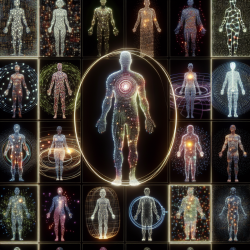The COVID-19 pandemic has forced many sectors to rethink their operations, and healthcare is no exception. The FIT Teens study on juvenile fibromyalgia provides a compelling example of how therapeutic protocols can be successfully adapted to a remote format without compromising efficacy. This shift not only ensures continuity of care but also opens new avenues for improving therapeutic outcomes through telehealth.
The Challenge of Juvenile Fibromyalgia
Juvenile fibromyalgia (JFM) is a chronic pain condition that affects young individuals, leading to significant functional disability and pain. Traditional treatment options have been limited, making it crucial to explore innovative approaches. The FIT Teens trial sought to evaluate whether a combination of cognitive-behavioral therapy (CBT) and neuromuscular exercise training could outperform CBT alone or graded aerobic exercise.
Remote Adaptations: A Necessary Shift
With the onset of the pandemic in March 2020, the FIT Teens trial faced significant challenges due to restrictions on in-person interactions. The research team paused enrollment and adapted their protocols for remote delivery. This involved transitioning group-based treatments to telehealth formats using secure video communication platforms like Zoom or Microsoft Teams.
Key Adaptations:
- Remote Delivery: Group sessions were conducted via video calls, maintaining high levels of attendance and engagement.
- Digital Materials: Treatment manuals and educational materials were digitized for easy sharing during virtual sessions.
- Video Resources: Exercise videos were created to ensure consistency in neuromuscular training across sites.
- Safety Protocols: Measures were implemented to ensure participant safety and confidentiality during home-based sessions.
Outcomes and Implications
The transition to remote delivery proved feasible, with metrics indicating sustained enrollment rates, high retention, and treatment fidelity comparable to in-person formats. Participants expressed satisfaction with the convenience of remote sessions, although preferences varied between parents and adolescents regarding format.
The success of these adaptations highlights several key implications for practitioners:
- Flexibility in Delivery: Remote formats can increase accessibility for families who face barriers such as distance or scheduling conflicts.
- Potential for Hybrid Models: Offering a mix of in-person and remote sessions could cater to diverse preferences and enhance social engagement.
- Data Collection Opportunities: Remote assessments provide valuable data on the impact of delivery mode on treatment outcomes.
- Sustainability Beyond the Pandemic: The lessons learned from this trial can inform future practices in delivering effective care through telehealth.
The Road Ahead: Encouraging Further Research
The FIT Teens study underscores the importance of adaptability in clinical trials and therapeutic interventions. Practitioners are encouraged to explore further research into telehealth applications for chronic pain management. Understanding the nuances of remote delivery can lead to more personalized and accessible care models for patients with juvenile fibromyalgia and other chronic conditions.
If you are interested in delving deeper into the adaptations made during this study, I recommend reading the original research paper: FIT Teens RCT for juvenile fibromyalgia: Protocol adaptations in response to the COVID 19 pandemic.
This exploration not only enhances our understanding but also inspires innovation in therapeutic practices that prioritize patient needs while embracing technological advancements.










